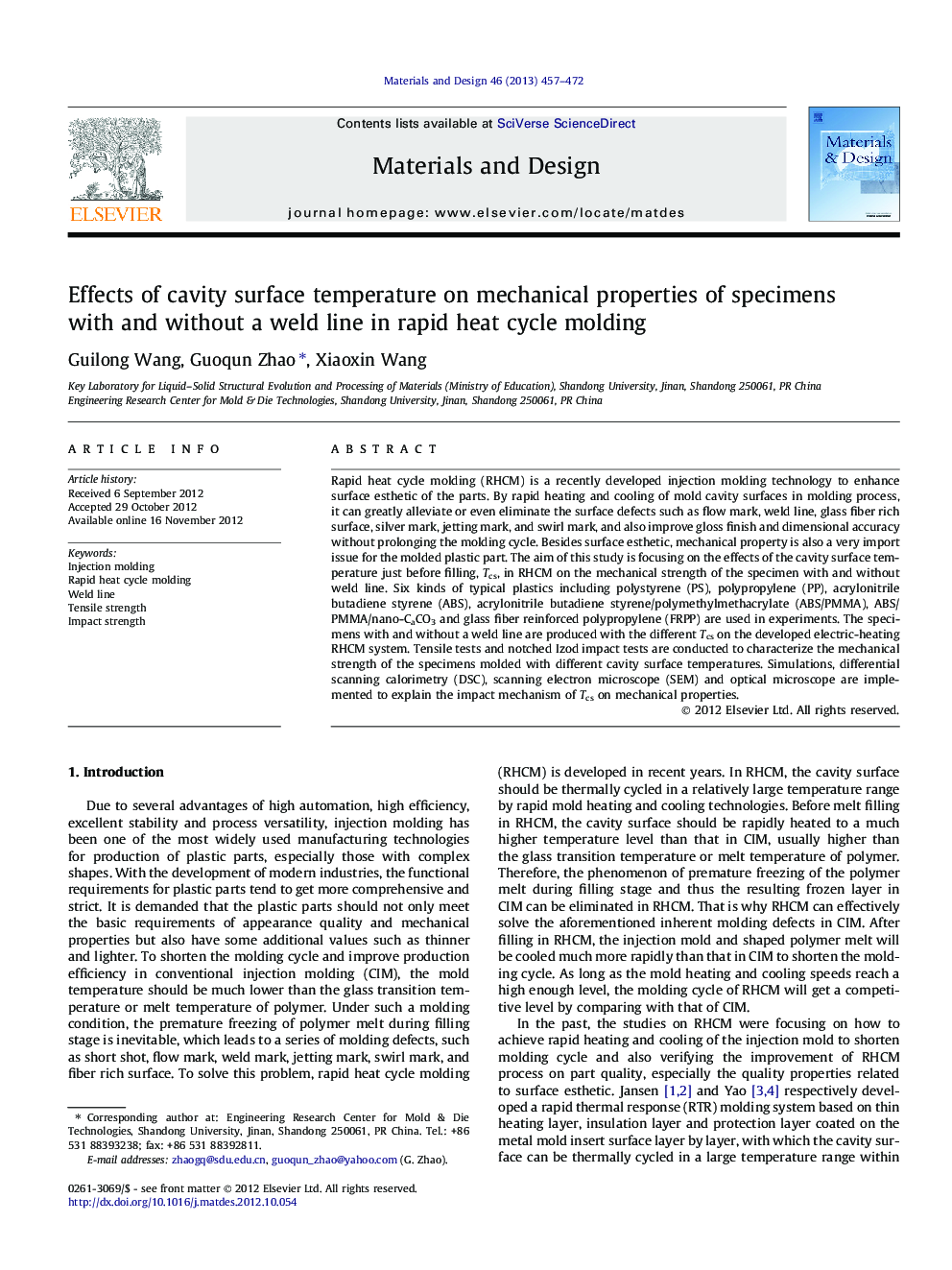| کد مقاله | کد نشریه | سال انتشار | مقاله انگلیسی | نسخه تمام متن |
|---|---|---|---|---|
| 830168 | 1470351 | 2013 | 16 صفحه PDF | دانلود رایگان |

Rapid heat cycle molding (RHCM) is a recently developed injection molding technology to enhance surface esthetic of the parts. By rapid heating and cooling of mold cavity surfaces in molding process, it can greatly alleviate or even eliminate the surface defects such as flow mark, weld line, glass fiber rich surface, silver mark, jetting mark, and swirl mark, and also improve gloss finish and dimensional accuracy without prolonging the molding cycle. Besides surface esthetic, mechanical property is also a very import issue for the molded plastic part. The aim of this study is focusing on the effects of the cavity surface temperature just before filling, Tcs, in RHCM on the mechanical strength of the specimen with and without weld line. Six kinds of typical plastics including polystyrene (PS), polypropylene (PP), acrylonitrile butadiene styrene (ABS), acrylonitrile butadiene styrene/polymethylmethacrylate (ABS/PMMA), ABS/PMMA/nano-CaCO3 and glass fiber reinforced polypropylene (FRPP) are used in experiments. The specimens with and without a weld line are produced with the different Tcs on the developed electric-heating RHCM system. Tensile tests and notched Izod impact tests are conducted to characterize the mechanical strength of the specimens molded with different cavity surface temperatures. Simulations, differential scanning calorimetry (DSC), scanning electron microscope (SEM) and optical microscope are implemented to explain the impact mechanism of Tcs on mechanical properties.
Figure optionsDownload as PowerPoint slideHighlights
► Higher cavity surface temperature reduces tensile strength of non-weldline part.
► Higher cavity surface temperature increases weldline tensile strength for PS and PP.
► Higher cavity surface temperature reduces weldline tensile strength for ABS, ABS/PMMA, ABS/PMMA/nano-CaCO3 and FRPP.
► Tensile strength is reduced more by the weldline than impact strength.
► FRPP has the lowest weld line factor than other plastics without reinforced fibers.
Journal: Materials & Design - Volume 46, April 2013, Pages 457–472